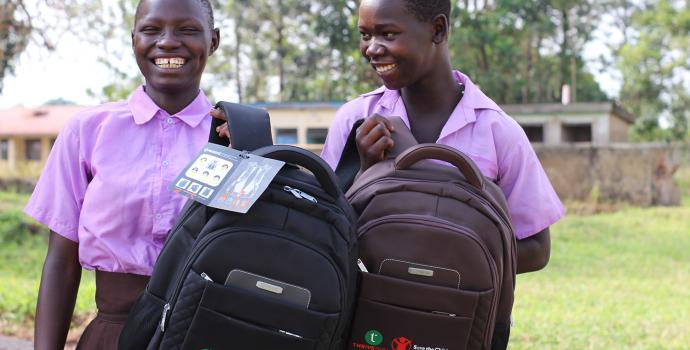Verification exercise confirms Uganda hosts most refugees in Africa - but funding fails to match
Signed by: Action Against Hunger, Adventist Development and Relief Agency (ADRA), BRAC, CARE, Catholic Relief Services, Church of Sweden, Church of Uganda, DanChurchAid, Danish Refugee Council, Diakonia Sweden, Finn Church Aid, Finnish Refugee Council, Food for the Hungry, Humanity & Inclusion, ICCO Cooperation, Lutheran World Federation, Lutheran World Relief, Mercy Corps, Norwegian Refugee Council, Oxfam, RACOBAO, Save the Children, SwissChurchAid (HEKS/EPER), Tutapona, Uganda Joint Christian Council, Voluntary Service Overseas (VSO), War Child Holland, World Renew, World Vision, ZOA
One of the biggest biometric verification processes ever undertaken has confirmed that Uganda is hosting 1.1 million refugees, by far the largest number in Africa and the third largest worldwide. With the scale of the crisis now confirmed, the international community should ensure the response is appropriately funded. As the end of the year approaches, the 2018 response plan has received just 42% of the required funds.
Since March 2018, the government of Uganda and UNHCR have embarked on a biometric verification exercise aimed at validating and updating the total number of refugees in Uganda. This process has been essential to confirm numbers, which are lower than previously reported, and must be the start of a renewed long-term commitment to provide an adequate and well targeted response to the largely unmet needs of refugees and their host communities. We look forward to a consolidated and unified refugee database that will support protection, identity management, well-targeted provision of assistance, and awareness of accurate population statistics. All of this is necessary to ensure better support, service delivery and durable solutions for refugees and their host communities in Uganda.
Uganda cannot handle this crisis alone. Uganda’s refugee policy is one of the most progressive in the world and the country has continued to welcome refugees at a time when many countries are shutting their doors. The support from donors so far is welcome and has helped save lives and provide services; but is falling far short of what is needed. The international community has not kept its own commitments made in the 2016 New York Declaration to share the responsibility and provide enough funding. In our daily work we see the impact of this: more than half of children are out of school; sick and pregnant women walk miles to reach health clinics that lack beds and medicine; poverty and need leaves girls vulnerable to sexual exploitation and forced marriage ; families queue for hours to try and get water; and frustrated youth have no jobs or hope for the future, as evidenced by a recent increase in suicides in some settlementsi.
We recognise and echo donor calls for accountability and are committed to measures that prevent and combat all types of wrongful conduct, including fraud, corruption and Sexual Exploitation and Abuse. However, continued failure to provide funding will lead to a further decrease in assistance for refugees, more than 60 percent of whom are children, and host communities. The influx has put enormous pressure on host community resourcesii, with far-reaching political, economic, social, developmental and humanitarian consequences. The humanitarian community in Uganda is committed to supporting refugees’ resilience and self-reliance, but further cuts to services such as food rations, water provision, healthcare and education could exacerbate tensions and generate violent conflict.
Uganda’s refugee policy is held up worldwide as a good example, so what happens next in Uganda will have global implications for how the world deals with refugee crises. A failure to support refugees and host communities here will jeopardize the credibility of the Comprehensive Refugee Response Framework and the forthcoming Global Compact on Refugees. At a moment in time when the
international community is setting out a new way of working and sharing responsibility, Uganda is the test case which cannot be allowed to fail.
We therefore urge international donors to:
- Recognise the verification exercise as the first step in committing to ensure a fully comprehensive and effective response to the refugee influx in Uganda
- Fulfill their commitments made in the New York Declaration to share responsibility for responding to refugee crises and urgently provide funds to meet the verified levels of needs
- Follow up on outstanding actions under the Joint Action Plan, ensuring that investigations of allegations of wrongful conduct are concluded and reported against
- Commit to upholding the quality of asylum for refugees by meeting their lifesaving needs through predictable multi-year funding and investment in infrastructure in order to achieve the minimum standards in the provision of multi-sector assistance and protection Step up efforts to find durable solutions to the crisis, including though committed international political action to end conflict in countries bordering Uganda




